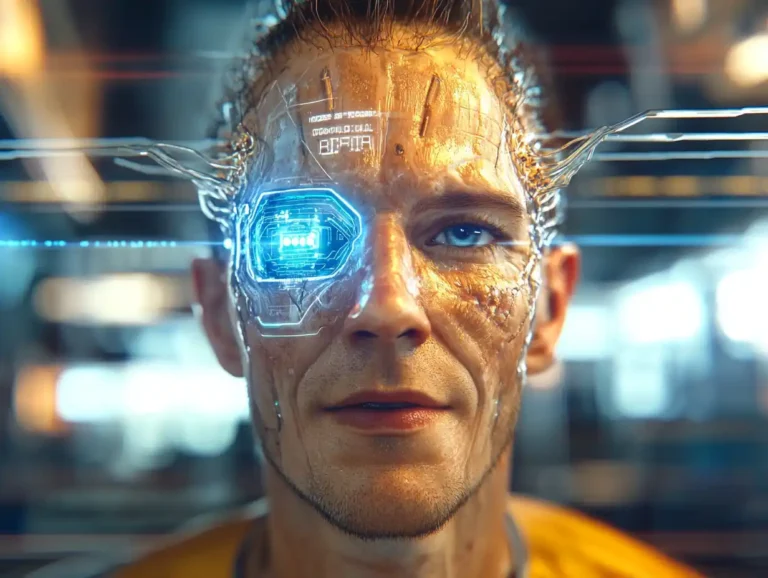A Mind-bending Reality Check
Imagine waking up one day and finding that you can run a computer with your mind. There is no computer, mouse, or voice order. You can only think. Doesn’t that sound like science fiction? In fact, a person named Noland Arbaugh has already done it in the future. Because of Elon Musk’s Neuralink brain device, Arbaugh can now play chess with just his thoughts. He has been paralyzed for eight years. Take that in.
In a live stream, Arbaugh said, “I just stare at something on the screen, and it moves where I want it to.” He’s now in charge of the digital world just by thinking about it. But wait, who is really in charge here? Is that him? The surgery? Both? That’s where things go wrong.
The Self: Just A Brain, Or Something More?
Philosophers have been arguing for hundreds of years about where the mind stops, and the outside world starts. Most people think that our brains are completely inside our heads. But what if technology makes that line less clear?
David Chalmers and Andy Clarke, two thinkers, came up with the idea of the “extended mind” in 1998. They said that tools and technology could really become a part of how we think. You’ve already grown your mind if you’ve ever used Google Maps instead of remembering directions.
Now, we are in the present, and Neuralink is making this idea come true. The chip in Arbaugh’s brain reads his ideas, processes them, and turns them into movements. That’s great for chess, but it also makes me think about something very important: if a machine acts on your thoughts, are you still acting?
The Contemplation Conundrum: Who’s Really In Control?
This is where things get tricky. Most of the time, our thoughts and behaviors are in sync. If you want to get a coffee, your hand can move without taking an extra step.
But it’s not like that for Arbaugh. The implant figures out what he wants to do by imagining moving the chess piece, and then the move happens. The process has a small but important hole. What if he changes his mind right then? What if the implant gets his thoughts wrong? Suddenly, things that he should be doing feel a little… strange.
The problem where thought leads to unexpected action is known as the “contemplation conundrum” by AI ethicists. What happens if a Neuralink user hurts someone by accident? Could they be blamed for something they knew they were thinking about but didn’t plan to do? These aren’t just hypothetical questions. As brain implants get better, they will change everything from the morality of medicine to the law.
Losing Ourselves To The Machine?
Brain implants could change the way people think about who they are forever. Could people start to feel like they have no control over what they do? For decades, science fiction has been warning us about this. For example, William Gibson’s Neuromancer showed a world where implants made people less unique. If our minds are connected to machines, where do we draw the line between a person and software? It sounds crazy.
Let us talk about privacy. Could Neuralink one day not only read minds but also guess what they will think? If your brain chip starts to guess what you’ll do before you do it, does that mean you lose your freedom? Think about a world where tech companies really do know what you’re thinking. That looks creepy, right?
Redefining The Self: A New Frontier
Though these things are scary, brain transplants might also make us rethink what it means to be human. If we agree with the idea of an “extended mind,” then implants might not need to be seen as “external” instruments. Instead, they might be seen as an important part of who we are, like our brains, memories, and even our phones (admit it, you freak out when you lose yours).
This point of view would solve the problem of reflection. If Arbaugh thinks of his implant as a part of himself, then what it does is what he does. Easy. Being open to this way of thinking is more important as we use technology more.
The Future Of Mind-machine Hybrids
It’s not just medical progress that Neuralink’s brain implants are making; they’re also a test run for a future where minds and machines work together. Whether that makes you feel excited or scared, one thing is clear: the line between people and technology is blurring.
As implants like Neuralink become more popular, we might have to change what it means to be responsible, to have free will, and even to be yourself. Are we moving towards an ideal where our minds are better or a future nightmare where we lose control? We still don’t know. No matter what, our ideas about who we are will never be the same again.







